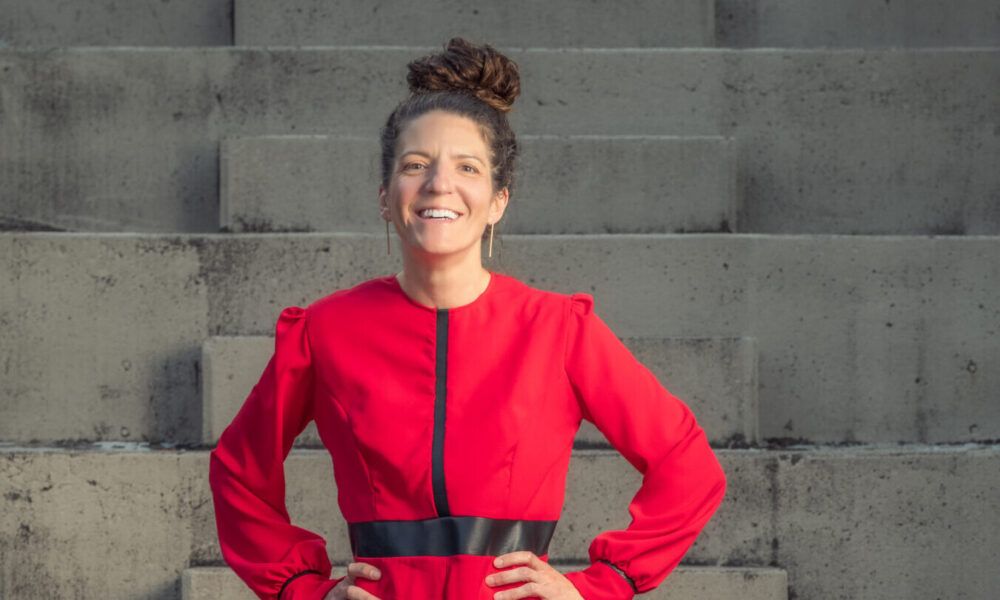Burberry has launched a collaboration with pre-loved platform Vestiaire Collective in an attempt to boost its green credentials.
The British fashion house is partnering with the pre-loved fashion resale app to allows shoppers to trade in their old Burberry items in exchange for a voucher.
In addition to the launch, the heritage brand has donated a selection of its trench coats to be sold on the platform, with proceeds going to SmartWorks – a UK-based charity providing interview clothes and coaching to women in need.
The sustainable rebrand is worlds away from the brand’s previous method of getting rid of old stock, which involved burning unwanted clothes and bags in a ‘bonfire of the vanities’ to prevent them from being sold cheaply and harming the brand.
Burberry burnt nearly £30m worth of clothes in 2017 to avoid them being sold cheaply, but announced it was ending the practice in 2018 as well as ditching real fur from its collections.

Taking to Instagram, Vestiaire Collective announced news of the collaboration, saying: ‘Burberry x Vestiaire Collective: introducing our new partnership with the iconic British fashion house.
‘Discover a timeless selection of trench coats, bags, and Checks – now available in an exclusive edit on Vestiaire Collective.’
The new partnership is part of Burberry’s sustainable edit – ReBurberry – aiming to implement circular initiatives to keep products in use for extended periods.
ReBurberry and the brand’s partnership with Vestiaire Collective marks a shift from Burberry’s previously deplorable green politics.
In 2017, Burberry destroyed £28.6million of unsold clothes, bags and accessories, taking the value of burned items to more than £105million over the course of five years.
The practice is common among designer labels to avoid their brand being devalued by unofficial outlets discounting products.
However, customer backlash prompted change, and the brand announced that it would cease burning clothes with immediate effect in 2018.
The move was part of its five-year project to operate to higher ethical standards, including waste.

The company, whose brand ambassadors have included actress and model Cara Delevingne and former Doctor Who Matt Smith, now strive to reuse, repair, donate or recycle all unsaleable products – and the latest collaboration with Vestiaire Collective is a significant milestone in the project.
It comes amid news that some of the UK’s most iconic brands fear they could face losing millions of pounds and King Charles’ seal of approval if they don’t prove their sustainable outputs.
Hundreds of firms granted a Royal Warrant under Queen Elizabeth II will have to show eco-conscious King Charles III that they have ‘an appropriate environmental and sustainability policy and action plan’ if they wish to keep the title.
Around 800 firms held the lucrative warrant under his mother, but the Royal Warrant Association’s website states that all warrants granted are reviewed by the royal household ‘upon a change of the reigning sovereign.’
Royal Warrants enable companies to have a royal coat of arms on their packaging for at least five years, although they can be cancelled if products fall below expected standards.

Warrants become ‘void’ upon the death of the person who granted them, meaning firms have to reapply for the honour, which has been shown to increase business by five percent, often equivalent to millions of pounds.
The RWA states firms qualify to apply for a Royal Warrant ‘by supplying products or services on a regular and on-going basis to the Royal Households of Grantor/s for not less than five years out of the past seven’.
It adds: ‘Amongst other things, applicants are also required to demonstrate that they have an appropriate environmental and sustainability policy and action plan.’
This could place some of the UK’s best-known brands with a less than clean environmental record in jeopardy.
A source at one of the UK’s oldest warrant holders told the Mirror: ‘Our boss said we’re losing the warrant because we don’t use recycled cardboard in our packaging. For years we’ve been trading on our links to the Royal Family and we’re worried we’ll lose the prestige.’
Among companies thought to be at risk are Cadbury, Cathedral City, Audi and Burberry.
Cadbury and Cathedral City both previously faced controversy after the milk they used in their chocolate and cheese was linked to deforestation in Brazil.
Cadbury was also criticised last year for not using Fairtrade cocoa, while Cathedral City was the subject of complaints over pollution at one of its plants.
The UK’s biggest cheese-making factory at Davidstow, Cornwall polluted the local area and was fined £1.5million last June.
Burberry came under fire after it was revealed it burnt £28million worth of stock in a single year, while motoring company Audi manufactures petrol and diesel cars, and its owners VW were previously fined in the 2015 fake emissions scandal.




